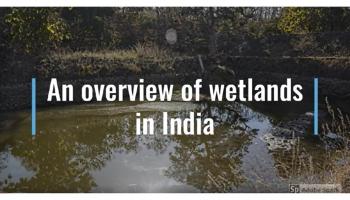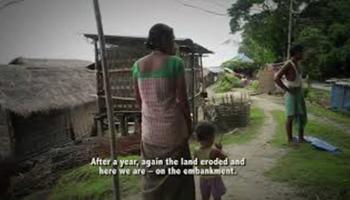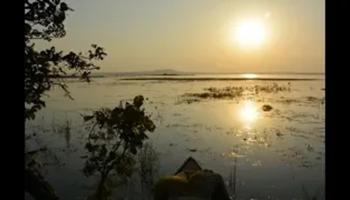Lakes, Ponds and Wetlands
Database of threatened lakes
Posted on 07 Jul, 2009 03:18 AM CSE (Center for Science and Environment, www.cseindia.org ) has created an interactive database on threatened lakes of India.
CSE (Center for Science and Environment, www.cseindia.org ) has created an interactive database on threatened lakes of India.
Workshop on how to save the lakes of Bangalore, Bangalore Environment Trust, Bangalore
Posted on 01 Jul, 2009 02:34 AM(Jointly organised by Bangalore Environment Trust and ARGHYAM) On 4 July 2009 at 1430h at the RAMAN RESEARCH INSTITUTE 
 Accor
Accor
Umiam lake conservation-stakeholder dialogue and future strategies held in Shillong on March 2009
Posted on 03 Jun, 2009 09:44 AMUmiam lake conservation – stakeholder dialogue & future strategies was held on 9th & 10th March 2009, in Shillong. People's learning centre (PLC), Shillong were the organizers of the event, the event was supported by Arghyam, Bangalore.
Corporate initiative 'Project Boond' by Bharat Petroleum and the Bridge Charitable Trust , Thane district , Maharashtra (2007)
Posted on 25 May, 2009 10:46 AMThis presentation describes Bharat Petroleum's 'Project Boond', funded by the Oil Industry Development Board and with
Ramsar convention: the convention on wetlands, 1971
Posted on 22 May, 2009 03:30 PMThe Convention on Wetlands of International Importance, called the Ramsar convention, is an intergovernmental treaty that provides the framework for national action and international cooperation for the conservation and wise use of wetlands and their resources.
Karnataka tank project for restoration of tanks: a slideshow from World Bank
Posted on 22 May, 2009 03:02 PMMost of India's rural poor live in rain-fed areas where agricultural productivity is low. In Karnataka-one of India's driest states-the World Bank is helping to revive centuries-old tank systems to improve farm productivity and raise incomes. Read More
Invitation from ATREE: Vembanad fish count 2009, Muhamma boat jetty, Vembanad lake
Posted on 22 May, 2009 12:00 AMForwarded to the Portal by: Dr.Latha Bhaskar, ATREE Image and Content Courtesy: ATREE
Bhoj wetland - experience and lessons learned - Brief
Posted on 21 May, 2009 12:39 PMThis brief on the International Lake Environment Committee site discusses the situation of lakes in the South East Asian region in the context of the growing water crisis and the gradual degradation o
Dreaming in color: efforts of Dr. Prakasham Tata to clean up a lake in Vizianagaram, Andhra Pradesh
Posted on 11 May, 2009 12:47 PMThis article by Dr. Prakasham Tata traces the author’s childhood dream of doing something to improve public health in Vizianagaram by ameliorating the conditions of Pedda Cheruvu and to provide a better environment around its historical centers, namely the fort, music college, clock tower, arts and science college, and the park housing the tombs of the maharajas.
Umiam lake conservation -Stakeholder dialogue and future strategies, 9-10 March 2009, Shillong
Posted on 17 Apr, 2009 03:43 AMGuest Post by: Amitangshu Acharya The Umiam Lake Conservation - Stakeholder Dialogue and Future Strategies was held on 9th and 10th March 2009 in Shillong. The presentations and some videos from the conference can be viewed here -https://www.indiawaterportal.org/data/conf/ULC.html To give help learn more about the Lake Umiam in Shillong, here is a backgrounder about Lake Umiam and its importance to Shillong. You can join the discussion forum about Umiam Lake here https://www.indiawaterportal.org/Network/forum/viewtopic.php?t=3044 Umiam Lake ( also known as Barapaani) originated as an artificial reservoir for the Umiam Umtru Hydro Electric Power project, the first of its kind in the North East. For a long time, this project had supplied the bulk of its power needs to the State of Meghalaya. The state's love affair with this lake spans 43 years. With approximately 12,000 mm of rainfall each year and a catchment area of 221.5 sq km (almost double the size of Chandigarh) Umiam rarely saw any dry days. Until now, that is. For two years now, Shillong has confronted one of the worst power crises ever. The reason is not hard to imagine: Umiam doesn't have enough water. Officially, inadequate rainfall has been cited as the sole reason, and a correlation does exist between decreasing water levels (about 39 feet over 3 years) in the lake and lesser rainfall since 2005. And once the water level falls below 3150 feet, there can be no power generation. However, the question is, whether the role of rainfall is being overplayed while the other issues remains unaddressed.







